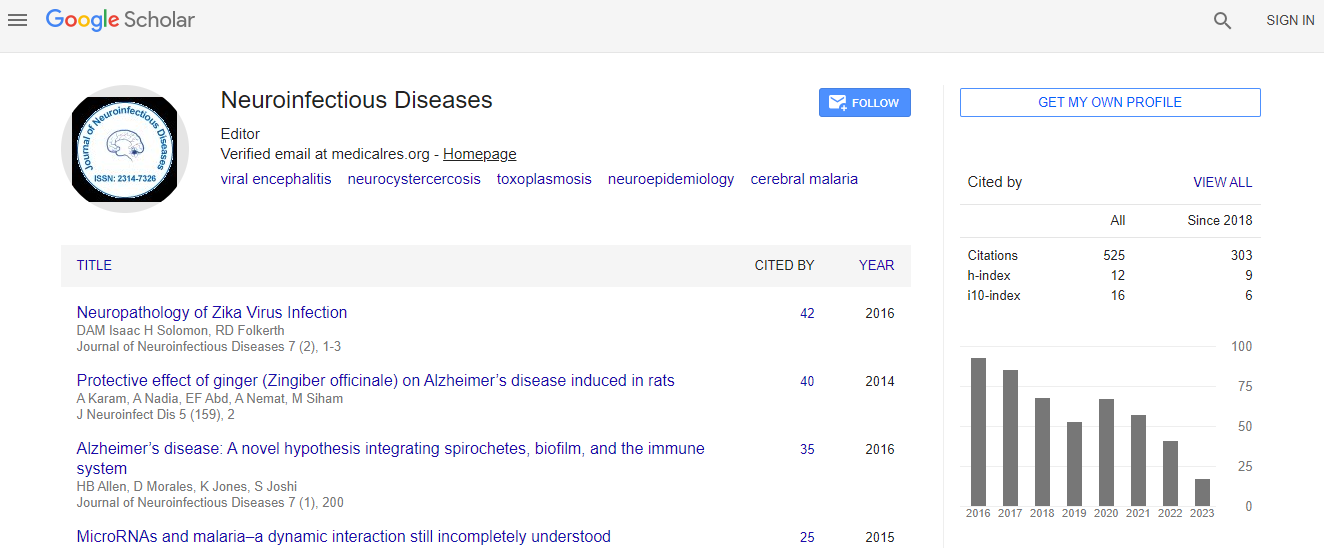Research Article
The Etiological Diagnosis and Outcome in Patients of Acute Viral Encephalitis: A Prospective Observational Study at Tertiary Care Centre of North India
Deepak Bhagchandani1*, Virendra Atam1, Supriya Thadani2, Kamal Kumar Sawlani1, Isha Atam1 and Anupriya Thadani21Department of Medicine, King George’s Medical University, Lucknow, India
2Department of Pharmacology, Era’s Lucknow Medical College, Lucknow, India
- *Corresponding Author:
- Deepak Bhagchandani
Department of Medicine, King George’s Medical
University Chowk, Lucknow-226003, Uttar Pradesh, India
Tel: 09919125667
E-mail: dbcburns0485@gmail.com
Received date: November 8, 2016; Accepted date: November 28, 2016; Published date: November 30, 2016
Citation: Bhagchandani D, Atam V, Thadani S, Sawlani KK, Atam I, et al. (2016) The Etiological Diagnosis and Outcome in Patients of Acute Viral Encephalitis: A Prospective Observational Study at Tertiary Care Centre of North India. J Neuroinfect Dis 7: 233. doi:10.4172/2314-7326.1000233
Copyright: © 2016 Bhagchandani D, et al. This is an open-access article distributed under the terms of the creative commons attribution license, which permits unrestricted use, distribution, and reproduction in any medium, provided the original author and source are credited.
Abstract
Background: Encephalitis, despite being an uncommon entity, is of public health importance worldwide because of its high morbidity and mortality. Around 70% of the disease burden is in Uttar Pradesh itself.
Purpose of study: To study the etiological prevalence and outcome of different viruses as causative agent of acute viral encephalitis in patients reporting to a tertiary health care center in North India.
Methods: All the patients presenting with febrile encephalopathy attending the outdoor patient department or emergency of medicine department were enrolled in the study, of these a total of 92 patients fulfilling the inclusion criteria were included in the study. An informed consent from the patients/their attendants was obtained.
Results: Minimum age of patients was found to be 14 years while maximum age was 61 years. Around 65.22% were males and majority of the patients were from Barabanki (22.83%). Magnetic Resonance Imaging findings were found to be positive in 85.87%. Most common etiology was Japanese encephalitis (38.04%) with human immunodeficiency Virus encephalitis (3.26%) being least common. After a follow up at 1 month, neurological sequelae were found to be highest in Japanese encephalitis while 100% mortality in human immunodeficiency virus encephalitis and recovery was highest in Dengue encephalitis (85.00%). Difference in outcome of different types of encephalitis was found to be statistically significant. Recovery was highest in age group up to 20 years (57.69%). Difference in outcome and age of patients was found to be statistically significant.
Conclusion: Early Reporting, appropriate workup and stabilization of the suspected acute viral encephalitis patients are important so as to reduce the morbidity and mortality.

